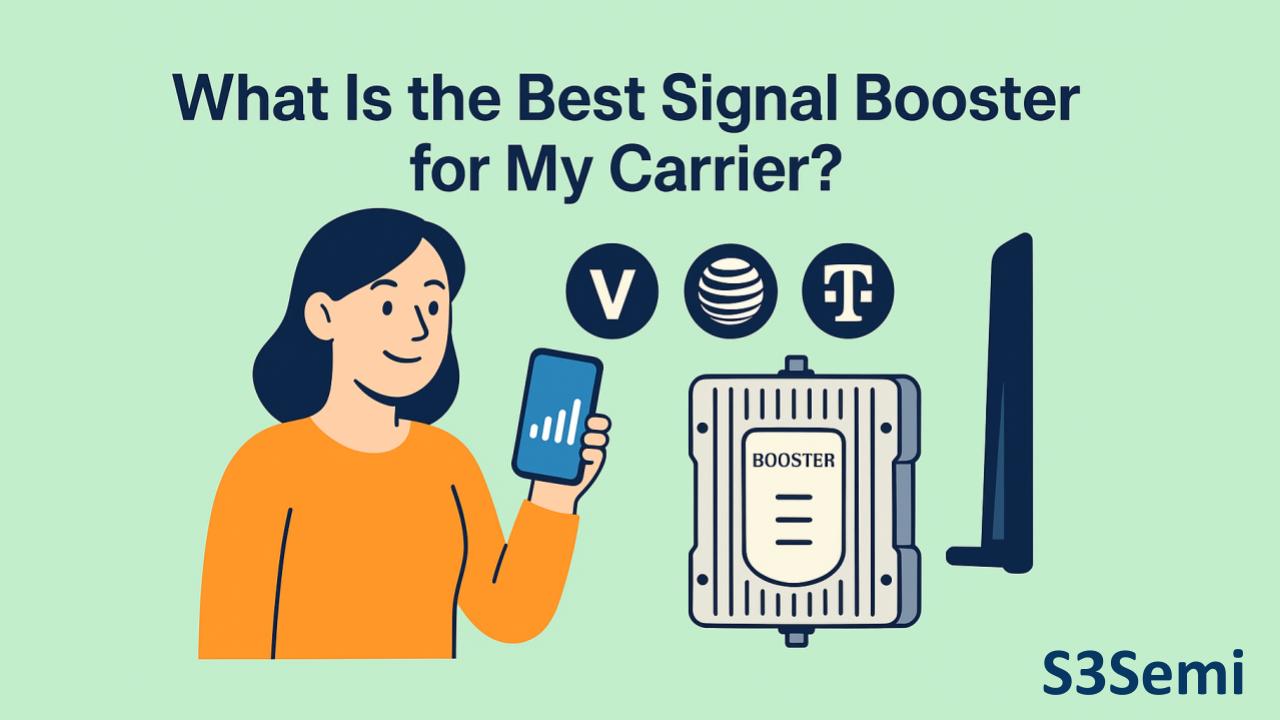📡 If you’re struggling with weak cell reception, a signal booster can make a huge difference. But not all boosters are created equal — especially when it comes to carrier compatibility.
Whether you’re with Verizon, AT&T, T-Mobile, or another network, this guide will help you find the right booster that works best for your carrier.
🏷️ Carrier-Specific Boosters
Some signal boosters are optimized for specific carriers by targeting the frequency bands those networks use most. Here’s a breakdown of popular boosters per carrier:
✅ Best Signal Booster for Verizon
- Recommended: weBoost Home MultiRoom or SureCall Fusion4Home
- Key Bands: 13 (700 MHz), 4 (1700/2100 MHz)
- Why it works: Verizon relies heavily on Band 13 and Band 4 — these boosters support both and offer strong gain.
✅ Best Signal Booster for AT&T
- Recommended: HiBoost Home 10K Smart Link or weBoost Home Complete
- Key Bands: 12/17 (700 MHz), 2 (1900 MHz), 4 (1700/2100 MHz)
- Why it works: These boosters cover all the common AT&T LTE and voice bands, ensuring consistent service indoors.
✅ Best Signal Booster for T-Mobile
- Recommended: SureCall Flare 3.0 or HiBoost Travel 4G 2.0 (for vehicles)
- Key Bands: 12 (700 MHz), 71 (600 MHz), 4 (1700/2100 MHz), 2 (1900 MHz)
- Why it works: T-Mobile uses a wide range of bands, and these boosters support the most important ones including Band 71 (low-band 5G LTE).
✅ Best Signal Booster for UScellular
- Recommended: weBoost Home Studio
- Key Bands: 5 (850 MHz), 12 (700 MHz)
- Why it works: Focuses on the legacy LTE bands used by UScellular in rural areas.
🌐 Universal vs. Carrier-Specific Boosters
📶 Universal Boosters
- Work with all major carriers
- Great if you have a mixed-carrier household
- Examples: weBoost Home MultiRoom, SureCall Fusion5s
🎯 Carrier-Specific Boosters
- Target certain bands used by one or two networks
- Sometimes better optimized or more affordable
- May lack coverage for newer or rare bands
Pros and Cons
| Type | Pros | Cons |
|---|---|---|
| Universal | Broad compatibility, future-proof | May cost more, unnecessary coverage |
| Carrier-Specific | Lower cost, focused performance | Limited to one or two carriers |
🚫 Carrier Restrictions
Most FCC-approved consumer boosters are carrier agnostic — meaning they are legally allowed to support multiple networks. However, there are some limitations:
- Band 71 (600 MHz) support is limited to only certain newer boosters
- Some carriers restrict booster registration if the device isn’t pre-approved
- 5G compatibility is still limited — most boosters only support 4G LTE
Before buying, always check:
- Supported frequency bands
- FCC certification
- Registration requirements (some carriers require online registration)
✅ Conclusion
Choosing the right signal booster starts with knowing your carrier’s frequency bands and needs.
- For Verizon: Look for Band 13 support
- For AT&T: Prioritize Band 12/17 and Band 2
- For T-Mobile: Make sure Band 71 is covered
- For mixed-use: Opt for a universal booster with multi-band support
By matching your booster to your carrier, you’ll get the best performance, reliable calls, and faster data — wherever you need it most.

